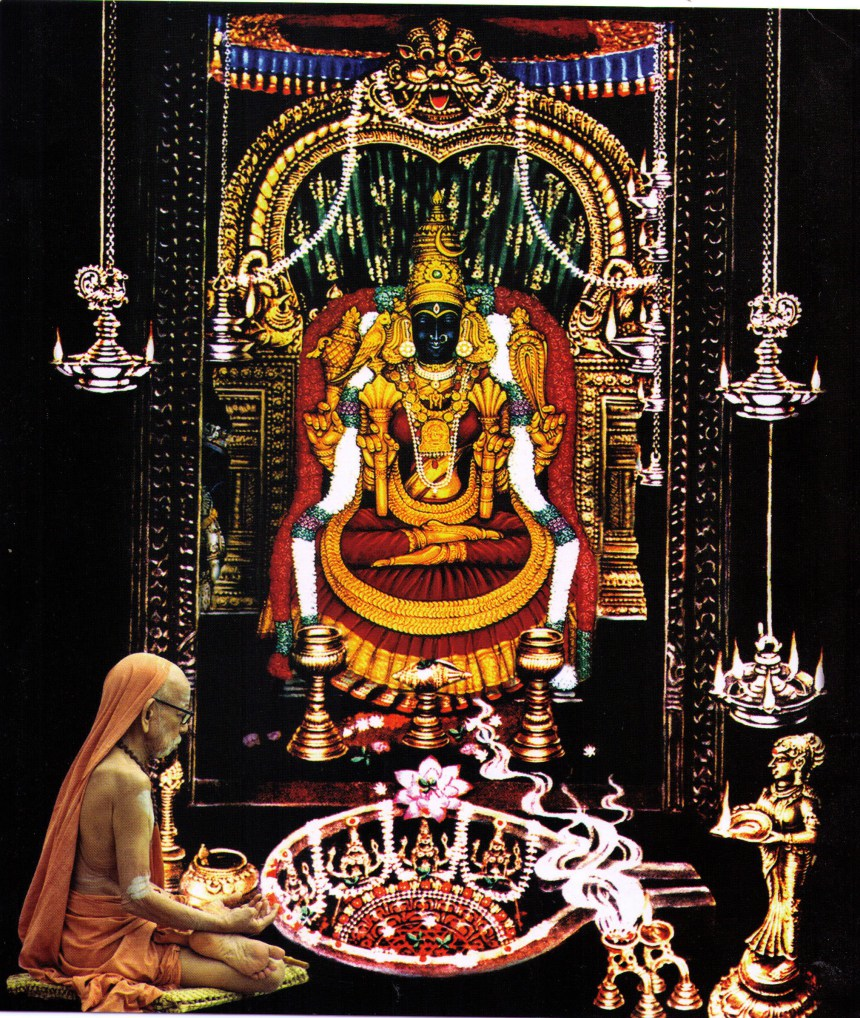There is no tonal variation in poetry as there is in Vedic mantras. The unaccented poetic stanza corresponding to the accented Vedic mantra owes its origin to Valmiki, but its discovery was not the result of any conscious effort on his part.
One day Valmiki happened to see a pair of kraunca birds sporting perched on the branch of a tree. Soon one of the birds fell to the arrow of a hunter. The sage felt pity and compassion but these soon gave way to anger. He cursed the hunter, the words coming from him spontaneously: "O hunter, you killed a kraunca bird sporting happily with its mate. May you not have everlasting happiness".
Manisada pratistham tvam
Agamah sasvatih samah
Yat krauncamithunadekam
Avadih kamamohitam
Unpremeditatedly, out of his compassion for the birds, Valmiki cursed the hunter. But, at once, he regretted it. "Why did I curse the hunter so? " When he was brooding thus, a remarkable truth dawned on him. Was he not a sage with divine vision? He realised that the very words of his curse had the garb of a poetic stanza in the Anustubh metre. That the words had come from his lips, without his being aware of them himself (in the same way as he had, without his knowing, felt compassion and anger in succession), caused him amazement.
It occurred to him that the stanza he had unconsciously composed had another meaning. The words aimed at the hunter were also words addressed to Mahavisnu. How? "O consort of Laksmi, you will win eternal fame by having slain one of a couple who was deluded by desire. " Ravana and his wife Mandodari are the couple referred to here and Ravana was deluded by his evil desire for Sita. Sri Rama won everlasting fame by slaying him. Without his being aware of it, the words came to Valmiki as poetry. Realising it all to be the will of Isvara, the sage composed the Ramayana in the same metre.
The "sloka" (without the Vedic tonal variation) was born in this manner. Valmiki was filled with joy that he had come upon the sloka as a medium that facilitated the expression of the highest of thoughts in a form that made it easy to remember like the Vedas themselves.
Prose is not easily retained in memory, not so poetry composed in metrical form. That is why in ancient times everything was put down in verse. Prose developed [in any significant sense] only after the advent of the printing press after which books began to be produced in large numbers for ready reference, obviating the need to memorise everything.
However it be, in conveying an idea or a message (or in imparting information) poetry has greater beauty and greater power. The Ramayana was the first poetical work, hence its name "Adikavya". We received the gift of the birth of various metrical forms used in the hymns to various deities, in the Puranas and in other poetical works.

